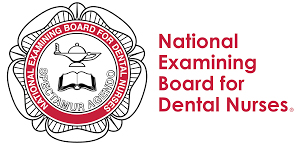Dental First Aid and Defibrillator
- SALE Savings End Midnight Tuesday 12th December
- SALE Savings End Midnight Tuesday 12th December
Dental First Aid and Defibrillator
This Course at a Glance
- Verifiable CPD
- Zoom and Tutor Led Training
- A comprehensive dental first aid course
- Gain skills to protect and save patient lives
- Designed for dental professionals and trainee nurses
- Learn how to assess and assist casualties in a dental setting
About your CPD Course
Getting Started
Next Course Date:
Modules
- How to correctly assess and assist in first response treatment of medical emergency
- The regulations and guidance relative to managing medical emergencies in the dental practice
- How to carry out manual as well as defibrillation assisted CPR
- The emergency medicine and equipment required and used by the dental practice
- The national guidelines for the safe provision of CPR in the dental setting during the pandemic
Entry Requirements
You must be a qualified dental professional or trainee dental nurse who is registered on the General Dental Council Register to enrol on our Continuing Professional Development (CPD) course. As such, you will need your GDC number to get started.
All course fees, inclusive of all payment plans including our Premium Credit Limited option, must be settled before certification can be ordered.
*You will have access to the course for 24 months.
On successful completion of this course, you will receive a learndirect Certificate of Completion for this Continuing Professional Development (CPD) course.
Your course certificate will also state the number of CPD points/hours the course is eligible for.
Frequently Asked Questions
- SALE Savings End Midnight Tuesday 12th December
- SALE Savings End Midnight Tuesday 12th December
Dental First Aid and Defibrillator
This Course at a Glance
- Verifiable CPD
- Zoom and Tutor Led Training
- A comprehensive dental first aid course
- Gain skills to protect and save patient lives
- Designed for dental professionals and trainee nurses
- Learn how to assess and assist casualties in a dental setting
About your CPD Course
Getting Started
Next Course Date:
Modules
- How to correctly assess and assist in first response treatment of medical emergency
- The regulations and guidance relative to managing medical emergencies in the dental practice
- How to carry out manual as well as defibrillation assisted CPR
- The emergency medicine and equipment required and used by the dental practice
- The national guidelines for the safe provision of CPR in the dental setting during the pandemic
Entry Requirements
You must be a qualified dental professional or trainee dental nurse who is registered on the General Dental Council Register to enrol on our Continuing Professional Development (CPD) course. As such, you will need your GDC number to get started.
All course fees, inclusive of all payment plans including our Premium Credit Limited option, must be settled before certification can be ordered.
*You will have access to the course for 24 months.
Qualifications
On successful completion of this course, you will receive a learndirect Certificate of Completion for this Continuing Professional Development (CPD) course.
Your course certificate will also state the number of CPD points/hours the course is eligible for.
Frequently Asked Questions
learning
learning hours
























